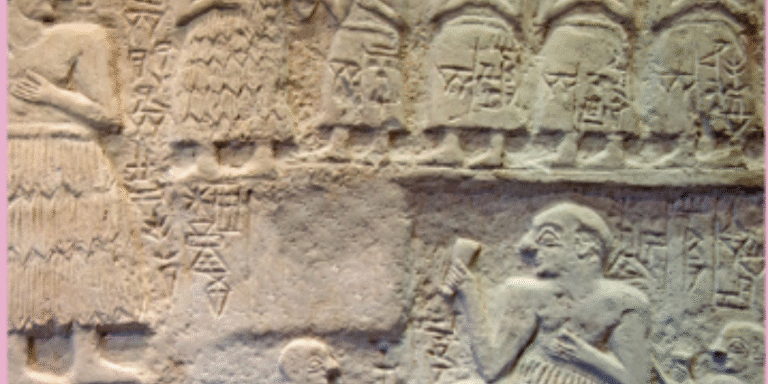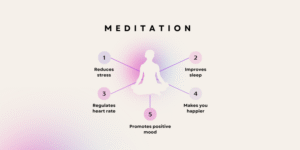The humanities are a broad collection of academic disciplines that focus on understanding the nature of human existence, expression, and culture. They differ significantly from the natural and social sciences, which often rely on empirical and quantitative methodologies. Instead, the humanities employ interpretative, historical, and critical methods to explore the intellectual and cultural life of humanity. These fields include, but are not limited to, art, history, philosophy, literature, linguistics, religious studies, musicology, and archaeology. Together, they provide a framework for interpreting human thought, behaviour, values, and artistic achievements over time (Bod, 2013).
By studying the humanities, individuals can develop a deeper awareness of cultural diversity, ethical reasoning, and historical context, all of which are vital for participating in a complex and interconnected world. The humanities also enhance critical thinking, communication skills, and the ability to engage with abstract ideas—capabilities that are valuable across many professions and areas of life.
1.0 Art
Art as a discipline explores the visual expressions of human creativity across cultures and historical periods. Scholars in this field examine painting, sculpture, photography, and other visual media, often within their historical and social contexts. The study of art includes analysing artistic movements—such as Renaissance, Baroque, Impressionism, and Modernism—and understanding how these movements reflect and shape societal values (Danto, 2013).
In addition to historical analysis, art criticism evaluates the aesthetic and conceptual aspects of artworks. Through visual literacy and theoretical frameworks, such as formalism, iconography, and semiotics, art historians explore the meanings embedded in visual forms and their impact on audiences.
2.0 History
History is the systematic study of the human past. It seeks to reconstruct, interpret, and understand the events, cultures, and individuals that have shaped civilisations. Historians employ various sources, such as written records, oral histories, and material artefacts, to develop narratives about the past.
The field is often divided into chronological periods (ancient, medieval, modern) and thematic areas (economic history, political history, cultural history). Historiography, or the study of how history is written, highlights the importance of perspective and interpretation in historical analysis (Carr, 1961). Understanding history is not just about memorising dates—it is about recognising patterns of change and continuity that help explain contemporary issues and challenges.
3.0 Philosophy
Philosophy addresses fundamental questions about life, reality, knowledge, morality, and human existence. It encourages rigorous thinking and debate about abstract concepts, such as truth, justice, beauty, and freedom. Philosophy is traditionally divided into several branches:
- Metaphysics: the study of existence and reality.
- Epistemology: the theory of knowledge and belief.
- Ethics: the study of moral values and conduct.
- Logic: the structure of arguments and reasoning.
- Political philosophy: the examination of political systems, rights, and justice (Russell, 1945).
Philosophy not only underpins many other disciplines but also promotes analytical thinking and ethical reflection, essential for responsible citizenship and leadership.
4.0 Literature
The study of literature involves analysing written texts to understand how language and narrative convey meaning, emotion, and cultural identity. Literary scholars engage with fiction, non-fiction, poetry, drama, and oral traditions, often using literary theories such as structuralism, post-colonialism, feminism, and psychoanalysis to interpret texts (Eagleton, 2008).
Literature reveals how individuals and societies grapple with issues such as love, conflict, power, and death. It also serves as a historical record of social values and linguistic evolution. By reading and interpreting literature, people gain insight into different worldviews and the complexity of human emotions.
5.0 Linguistics
Linguistics is the scientific study of language. It examines language structure (syntax and morphology), sound systems (phonetics and phonology), meaning (semantics), and language use in social contexts (sociolinguistics). As Noam Chomsky (1957) famously argued, language is a unique human capacity and central to all forms of communication.
Linguists investigate how languages evolve over time, how they are acquired by children, and how they function in various societies. This field contributes to diverse applications, from artificial intelligence and language teaching to forensic analysis and cognitive science.
6.0 Religious Studies
Religious studies explore the beliefs, practices, rituals, and institutions associated with religious traditions. This field includes comparative religion, theology, philosophy of religion, and sociology of religion. Scholars may examine major world religions—such as Christianity, Islam, Hinduism, Buddhism, and Judaism—as well as indigenous and new religious movements.
Through this study, individuals can understand the symbolic systems, sacred texts, and ethical teachings that influence billions of people around the world. Religious studies also investigate the historical and political roles of religion in society (Eliade, 1987). This field fosters interfaith dialogue and contributes to peacebuilding and cultural understanding.
7.0 Musicology (Music)
Musicology is the scholarly study of music from historical, theoretical, and cultural perspectives. It includes:
- Music theory: the analysis of musical structure and harmony.
- Music history: the study of musical developments across time.
- Ethnomusicology: the study of music in different cultural contexts.
- Performance studies: the investigation of musical interpretation and practice (Kerman, 1985).
Musicologists explore how music communicates emotions, reflects social identities, and serves ritual and entertainment functions. This discipline highlights the deep connections between music and human experience.
8.0 Archaeology
Archaeology investigates past human societies by examining material remains such as tools, pottery, buildings, and bones. It provides unique insights into civilisations that predate written history. Archaeological methods include excavation, radiocarbon dating, and spatial analysis using technologies such as Geographic Information Systems (GIS).
Archaeology bridges the humanities and sciences, combining historical inquiry with scientific analysis. By reconstructing daily life, trade networks, and belief systems of ancient peoples, archaeology contributes to our understanding of cultural development and heritage preservation (Renfrew & Bahn, 2016).
The humanities form the cornerstone of our collective efforts to understand what it means to be human. Each field—whether it be philosophy questioning the nature of truth, art interpreting the human spirit, or archaeology uncovering the secrets of ancient societies—contributes to a richer understanding of our world. In an era dominated by technological change and global interdependence, the humanities remain essential for fostering empathy, critical thought, and cultural literacy.
References
Bod, R. (2013) A New History of the Humanities: The Search for Principles and Patterns from Antiquity to the Present. Oxford University Press.
Carr, E.H. (1961) What is History? Penguin Books.
Chomsky, N. (1957) Syntactic Structures. Mouton.
Danto, A.C. (2013) What Art Is. Yale University Press.
Eagleton, T. (2008) Literary Theory: An Introduction. University of Minnesota Press.
Eliade, M. (1987) The Sacred and the Profane: The Nature of Religion. Harcourt.
Kerman, J. (1985) Contemplating Music: Challenges to Musicology. Harvard University Press.
Renfrew, C. & Bahn, P. (2016) Archaeology: Theories, Methods, and Practice. Thames & Hudson.
Russell, B. (1945) A History of Western Philosophy. Simon & Schuster.









